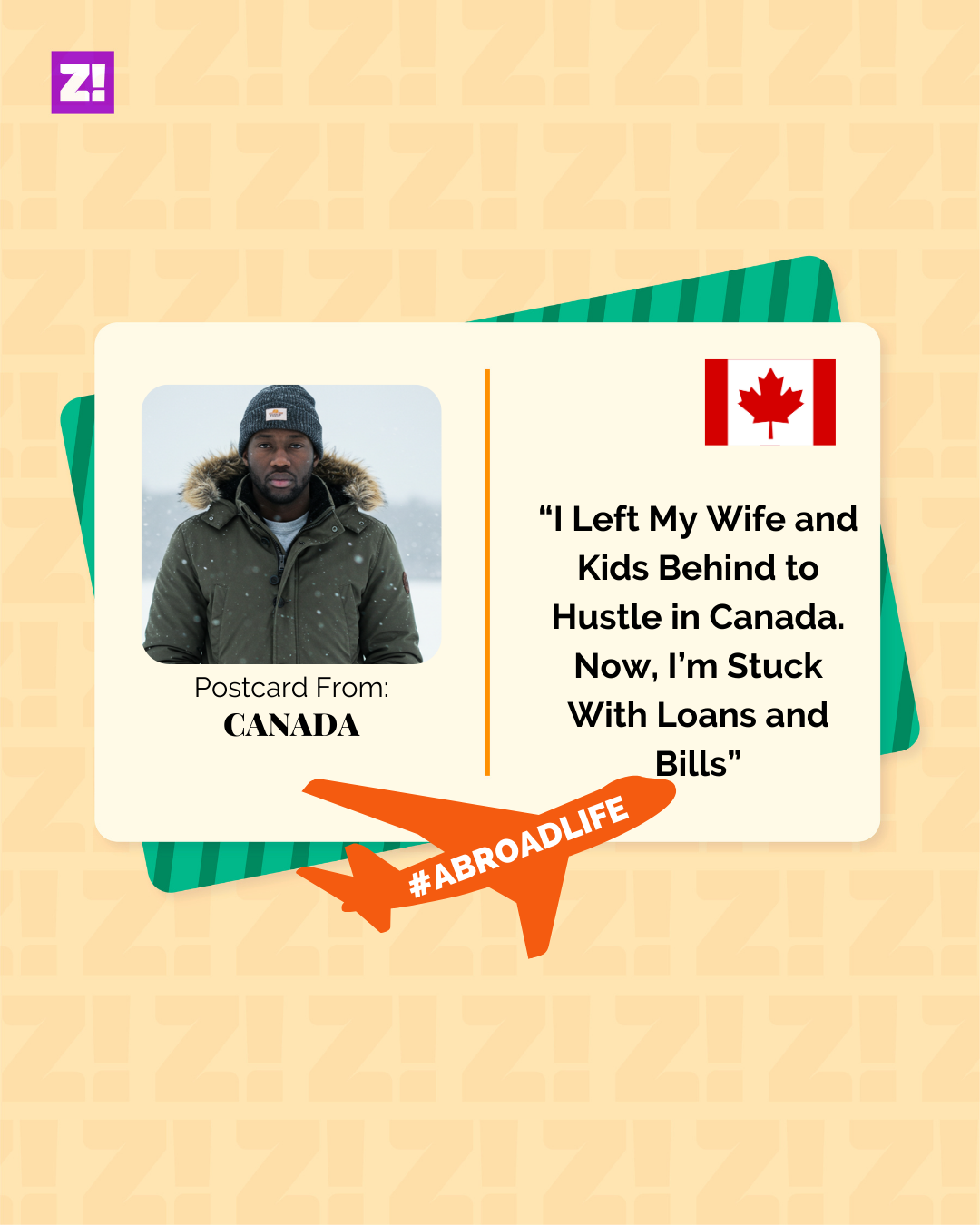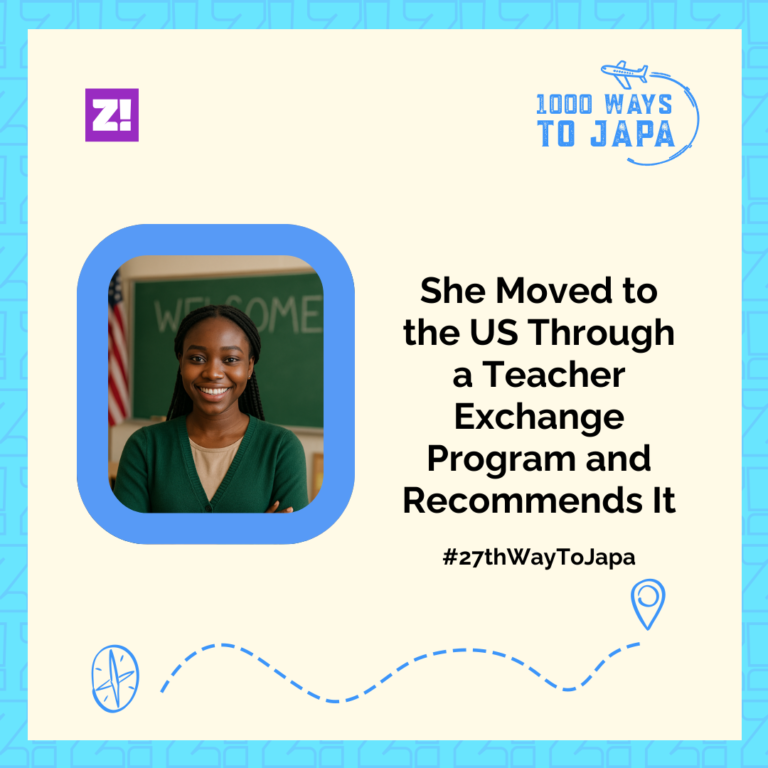The Nigerian experience is physical, emotional, and sometimes international. No one knows it better than our features on #TheAbroadLife, a series where we detail and explore Nigerian experiences while living abroad.
Ella (21) left the loneliness in Germany to reconnect with friends and family in Nigeria. Two years after that decision, she regrets ever leaving Germany. In this episode of Abroad Life, she talks about relocating from Ukraine to Hungary, then Germany, and finally returning to Nigeria within three years.
Where do you currently live, and when did you leave Nigeria?
I lived in Germany, but I moved back to Nigeria in December 2023. I spent two years in Berlin, but before that, I was a student in Ukraine.
Why did you decide to move back to Nigeria?
At that point, I didn’t like a few things about Germany. One of them was that they had no sense of urgency. I also didn’t see the potential of having a good life there because of racism. I thought the colour of my skin would make it harder for me to have a good life and settle down in the country. Looking back at it, that wasn’t the case. I think I just had a more negative mindset at the time, so I decided to move back to Nigeria and try to relocate to North America from there.
You said you had a tough time getting things done. Can you explain what that means?
It was the most basic thing I struggled with. For instance, it took over a year to get a credit card to process online payments. Because of that experience, I concluded that the country was too backwards for me. If you want to register for your address or get your insurance card, you must either write a letter or go to a physical office. There are no online provisions for most of the processes there, and they take forever.
You also mentioned that racism was one of the reasons you moved. Could you tell me more about that?
The interesting thing is I don’t have a personal experience of racism in Germany, but a Nigerian friend of mine did. There was a day when he was trying to get into his apartment. Typically, you open the door with a key or ask someone to buzz you in, but at the time, two German ladies were already at the door. He thought he was going to go in right after they entered, but the German ladies cursed him in their language and slammed the door in his face after they noticed him. The apartment itself was full of racist people. He eventually had to move out before his rent was due, and the landlord refused to give him his deposit.
That’s insane. What did your life in Germany look like at the initial stage, and why did you leave Ukraine?
It wasn’t my decision to leave Ukraine. There was a war going on, and I had to leave for my safety. I was 18 at the time, and I had only spent 2 months there. When I left Ukraine, I moved to Hungary, where I stayed for a month. I had to leave because I couldn’t get a job there or afford their schools. So I decided to move to Germany to continue my education because if you can learn the German language, you can study for free in Germany. When I moved there, I got a job. I love to cook, so I decided to work in a professional kitchen. I was making decent money and could afford everything I wanted to afford. But it was lonely.
What made it lonely?
I don’t think I put any effort into making friends. There’s a difference between wanting to make friends and actually putting yourself out there. I didn’t put myself out there enough, so I didn’t make friends. I had a handful of acquaintances, a roommate and two friends I made in Ukraine. But it was lonely because, at the end of the day, I didn’t have anyone close enough to me to share my struggles and my problems with. I felt alone.
Is that one of the reasons you left?
Yes, I think so. If I had more friends around me, I could have gotten better advice because I don’t think moving to Nigeria was the best decision I could have taken at that point. The people around me at the time didn’t make me feel like I had other options. At that point, moving back felt like my only option.
Did you ever discuss that decision with your family before you moved?
Well, I told them about it, and they said it was fine. They believed that I was old enough to make that decision.
What has life looked like since you moved to Nigeria?
I got to the airport, and I realised what I had done. I still remember feeling anxious at the time but I’ve started adjusting to life in Nigeria. I found my community here and I’m also doing a lot of self reflection and discovery. I don’t have a job at the moment but I’m earning a little from forex trading. Having free time on my hands makes it easier to reflect on where I’m at in life and where I want to be.
I’m glad you’re figuring it out
Oh yes. I’ve been going to the gym and reconnecting with a few of my classmates from secondary school. We meet from time to time. My social life is much better now compared to when I was in Germany. I now have people I can talk to when I have issues. I have friends with whom I can go hiking. It’s not a bad life at all.
Is there anything that took you by surprise after you moved to Nigeria?
I mentioned that I was 18 when I left. I’m 21 now, and I can’t believe how much the prices of things have skyrocketed. It’s insane, and that’s been a big issue for me. I feel like I was able to afford things more easily in Germany. Over there, it was easier to experiment with recipes because things were affordable, but now, I find it difficult to cook as much as I used to. I always find it crazy when I calculate how much I spend on ingredients alone.
I know. Was Ukraine any better?
I was only there for two months, so I don’t have much to say about the country. Being a teenager in Ukraine was scary. I was so naive, and I made many mistakes. But I don’t like to dwell on those memories because they made me stronger.
One thing I can say about Ukraine is that the Nigerian community there is much better than Germany’s. I was able to find a Nigerian community in the church and in my hostel. I got to form some nice bonds within the space of two months. Another thing is the weather—I wasn’t prepared for how cold it was there and was still trying to adjust to it when the war started.
What was the war like for you?
I was in denial at first and decided to stay back despite my parent’s pleas. I stayed put till things got bad, and I decided to leave for Hungary. I stayed in a shelter when I got to Hungary. The Hungarian government helped and fed us for a bit, but they put out a notice saying they wouldn’t be giving people permits to stay in their country. In the absence of a permit, some Nigerians in the shelter decided to seek asylum, but I didn’t want to do that. That’s when I moved to Germany, hoping to learn their language and study for free.
So, did you ever learn to speak German perfectly?
Not really. I only know enough German to get through the most basic conversations.
If you could go back in time, would you still move back to Nigeria?
Probably not. I regret it, but I’m not going to sit with that regret. I can admit that it wasn’t the best decision, but I have moved past it. Now, I advise Nigerians who are considering moving back because of the lack of community to find a church or a gathering with people who practice whatever religion they belong to. You’ll find good people there, and It will help you on those bad days. In Germany, I had only one person around me, and that one person said things that drove me back to Nigeria. Something that wouldn’t have happened if I was surrounded by more good people.
Do you have any plans to relocate in the future?
I’m actually planning to leave the country this year. I want to go back to Europe to get my education. I’m content with my life here, but I don’t see myself raising children here.
I’m rooting for you! On a scale of one to 10. How happy would you say you are right now?
I’ll say 8.5. I just need one tiny miracle, and my happiness will be a perfect ten.
Do you want to share your Abroad Life story? Please reach out to me here. For new episodes of Abroad Life, check in every Friday at 12 PM (WAT).




